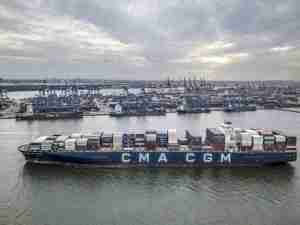Asian grain mills stick with containers despite higher cost
By: Reuters | Apr 20 2015 at 02:38 PM | Maritime | Liner Shipping
Rapid growth in the use of containers to ship grains and oilseeds to Southeast Asia could take a step back this year after a fall in bulk freight rates to record lows, although smaller mills will mostly stick with containers, traders said.
Asian millers started importing grains in shipping containers about a decade ago, using empty boxes that were returning to Asia after delivering electronics and white goods, rather than traditional bulk cargo vessels.
Offering door-to-door shipments, regular scheduling and small volume contracts, containers accounted for about 20 percent of Southeast Asia’s grain and oilseed shipments in 2014, grain traders said, up from 10-15 percent the year before.
However, an expansion in the global bulker fleet and a steep drop in crude oil prices dragged global bulk shipping rates to record lows in February. Prices are down 25 percent this year.
The quoted rate for a 50,000-ton bulk vessel from the western United States to Port Klang in Malaysia has fallen to around $20-$25 per tonne, while the container rate has held largely steady at around $40-$45 a ton, shipping sources said.
The widening cost difference has pushed some users, such as feed purchasers in Vietnam back to bulk shipments, traders said, but the gap would need to widen by a further $10 to $15 a tonne to erode the benefits of containers for most smaller mills.
“The volume shipped in containers has kept more or less intact,” said Voytek Chelkowski, managing director of Singapore-based freight consulting firm Seamind.
“While we expect that the depressed bulk market may temporarily reduce the volume of grains shipped in containers, the value and opportunities of this mode of transportation will keep this segment vibrant,” he said.
Small millers in countries such as Indonesia, Vietnam, Thailand and the Philippines want lower volumes than a bulk carrier load. International trading companies that bring grains on larger vessels often end up selling one cargo to several different mills, traders said.
“The main reason is flexibility, as shipping grain in containers means importers can control the unloading much more effectively and get the grain to off-port locations with greater ease,” said Timothy Simpson, director of marketing and communications for North America at Maersk, the world’s biggest container shipping company.
Containers also allowed for easy shipment and tracking of non-genetically modified grains and organic food. (Reuters)








